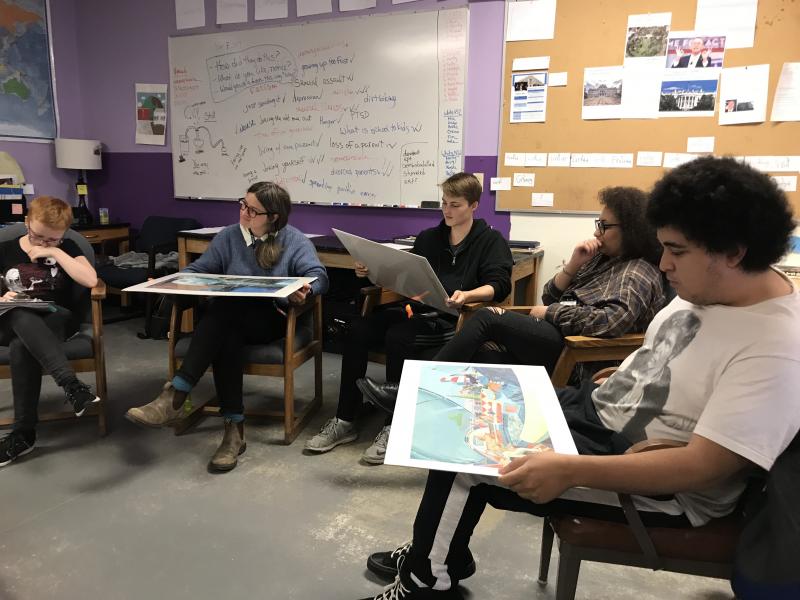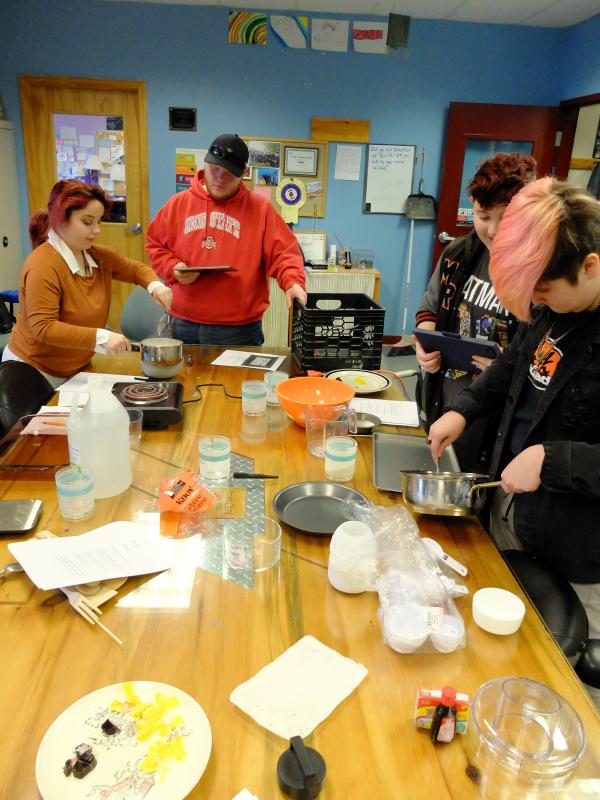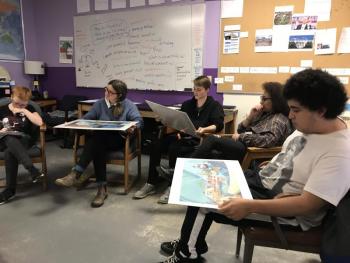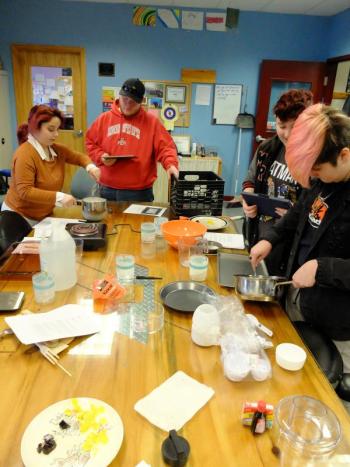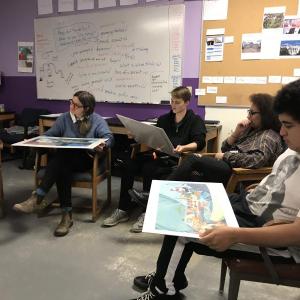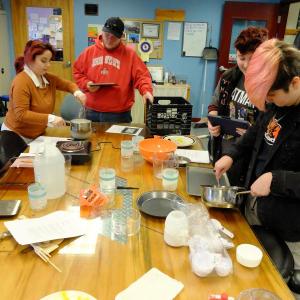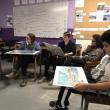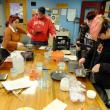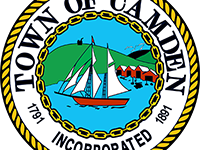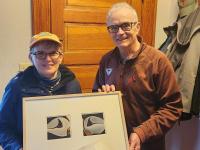Camden Hills Regional High School rolls out Hatchery Innovation Center
The Hatchery Innovation Center was established at Camden Hills Regional High School last fall, following a 18-month planning phase to create a program and space to foster design and problem-solving skills.
A resulting partnership with NuVu, an Innovation School in Cambridge, Massachusetts, has also been established.
NuVu fellow Megan Valanidas is helping teachers incorporate an innovation model into their courses.
“Megan and I have been collaborating and co-teaching all semester which makes it possible to run a really great program,” said Zenith teacher Emily Sapienza. “She knows the design piece, and I know the [students]. Working together teaches me how to think and plan courses this way, which in turn helps me bring innovation, problem-based and project-based practices more into my own curriculum planning.”
In addition, CHRHS is offering its own courses and created a MakerSpace where much of the magic happens.
What are the courses and studios?
As part of The Hatchery program, students may enroll in Introduction to Innovation Engineering, a dual enrollment course with the University of Maine. Students then receive high school and college credit.
As part of the course, students are asked to identify a problem; the problems can be large societal issues or simple day-to-day inventions that improve household needs. They then think of creative solutions to solve that problem, developing an original product from start to finish.
CHRHS alternative education program, Zenith, has participated in couple of NuVu studio courses.
The first, Children’s Books, explore the processes in book creation.
Illustrator and author Chris Van Dusen, of Camden, talked with Zenith students about how he writes and illustrates children’s books, displaying some of his original artwork.
“Students in the Children's Books studio have chosen topics for the books which are difficult but important (like racism or loss of a parent) and have designed, written, and illustrated books which help children learn about and cope with those issues,” said Zapienza.
Zenith students also learned about bioplastics, which is plastic made from biological material, and spent time making their own.
The But I Recycle studio: “Seeks to ameliorate the huge environmental problem of plastic waste. Students choose an item from daily life (such as window panes or packaging on makeup cases) and are prototyping replacements for those objects with new ones they design which are made out of a biological plastic, that is, one that will decompose on its own rather than sit in a landfill for millennia,” said Sapienza.
Children’s Books and But I Recycle are semester long studios.
In the Spring, two additional studios will be offered to any CHRHS student: Nature Calling (building composting toilets) and Devices for Activism (how to design and create devices for a particular topic or issue).
Where do they develop their ideas into prototypes?
The MakerSpace, which is in the former Industrial Arts classroom at the high school, has tools and equipment to move ideas to products.
There are 3D printers and a laser cutter, as well as woodworking and welding tools.
Students can access the makerspace through a class or on their own. They use the Makerspace to work out their ideas, build the prototypes, redesign or rework, and present final products.
There is a photo studio within the Makerspace where students photograph their work at each stage of the process to create portfolios for feedback and for a grade. Within the Makerspace, one of our students may make a prototype for the next aquaculture harvesting system, a new book form, or new way to remotely remove snow from Maine walkways.
What will happen next?
Future growth of The Hatchery program includes renovating the lecture hall to become an incubator space where collaboration, community events, and classes can take place.
There will be writeable walls, a sound studio, and a variety of collaboration and workspaces.
In the next year, the Hatchery plans to host a Speaker Series and Café Nights where students, community members, entrepreneurs, and business partners can discuss ideas.
This summer, the district will host an Innovation Conference on July 1-2.
The two-day conference at Camden Hills intends to assemble educators, students, entrepreneurs, business people and industry leaders together through the eyes of innovation.
Conference attendees will hear compelling stories from varied presenters, including Doug Hall, founder of Eureka! Ranch; Habib Dagher, founder of the Composites Lab at UMaine; and a panel of young entrepreneurial alumni.
Registration will open soon; csd.fivetowns.net/innovationconference
Follow on Twitter | @SCHOOLSCAMDEN
LinkedIn | Five Towns CSD/MSAD #28
YouTube | Five Towns CSD/MSAD #28
Event Date
Address
United States

